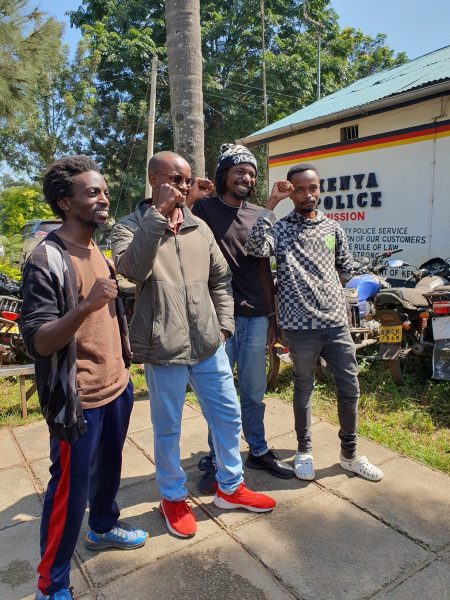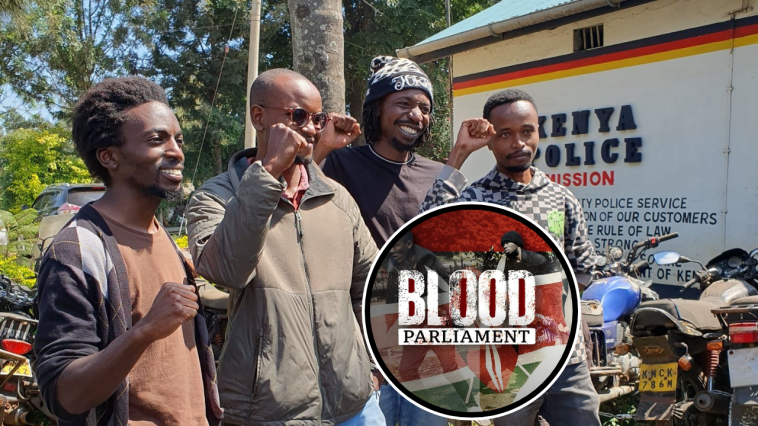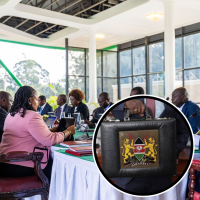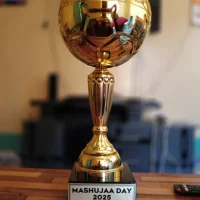Nairobi, Kenya — Four Kenyan filmmakers arrested over their involvement in the controversial Blood Parliament documentary have been released on a free bond—but without their work equipment.

Nicholas Wambugu, Brian Adagala, Mark Karubiu, and Christopher Wamae were taken into custody on Friday night and booked under accusations of “false publication.” Their arrest came just days after the release of Blood Parliament, a BBC Africa documentary highlighting police brutality during the Gen Z-led protests of June 2024.
Filmmakers Linked to BBC’s ‘Blood Parliament’
The blood parliament documentary, which aired last week, exposed harrowing scenes of violence, injuries, and deaths among youth protesters calling for reforms and government accountability. The filmmakers are reported to have contributed footage and production support to the project.
Despite no official charges being filed, authorities held the group overnight and have retained all their devices, including laptops, cameras, and hard drives. Their legal team argues this violates digital rights and obstructs journalistic freedom.
“This is intimidation, plain and simple,” one of the lawyers stated. “The state is targeting creatives for participating in a factual, internationally published documentary.”
Digital Tools Held Without Justification
The Directorate of Criminal Investigations has yet to explain the legal basis for holding the filmmakers’ equipment. According to insiders, the devices were seized without court warrants, sparking fears of a digital fishing expedition to uncover contacts, footage, or sources related to the documentary.
The action has drawn backlash from human rights defenders, tech freedom groups, and Kenya’s creative community, who say this is a direct attack on freedom of the press and artistic expression.
Public Support Grows for the Filmmakers
Outrage has spilled onto social media under hashtags like #FreeTheFilmmakers and #GenZVoices, with thousands of Kenyans—including activists, media personalities, and artists—demanding the immediate return of the confiscated gear.
Several civil society organizations have already launched legal petitions and threatened protests if the state fails to explain its actions. Others argue this is a test case of Kenya’s democratic maturity ahead of 2027.
“This is not just about four individuals,” said a statement from a coalition of creatives. “It’s about the right of every storyteller, journalist, and artist to work without fear.”
Conclusion
The release of the four Blood Parliament filmmakers marks a temporary victory for free expression in Kenya—but the battle isn’t over. With their tools still in police hands and no formal charges brought forward, the creative industry watches closely.
In a digital era where citizen journalism and documentary filmmaking shine light on social injustice, the treatment of these filmmakers could set a precedent—either toward greater accountability or deeper repression.
Discover more from ULIZA LINKS NEWS
Subscribe to get the latest posts sent to your email.



